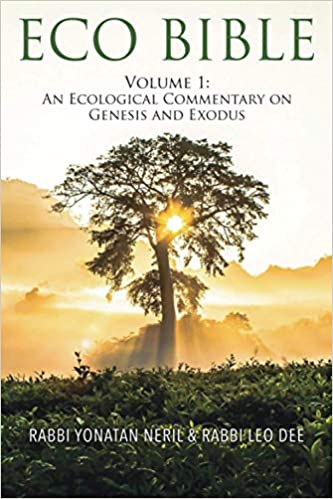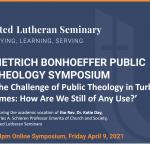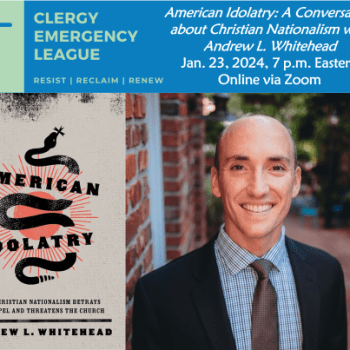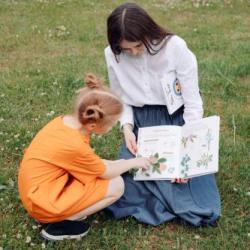Imagine traveling with a group of people on a boat sailing across the beautiful water. But then one of them pulls out a drill and begins boring a hole down through the center of the hull. An uproar ensues where the passengers demand to know: “Why are you doing this?” The man answers, “What does it concern you? Am I not drilling under my own place?” Stating the obvious, the rest reply, “But you will flood the boat for all of us!”

Eco Bible, Volume 1: An Ecological Commentary on Genesis and Exodus
This pithy little story by Rabbi Shimon bar Yochai found on page xxi of the Eco Bible, Volume 1 comes from an 1,800-year-old Jewish commentary on the Hebrew Bible. Ancient wisdom for our modern environmental dilemma, the parable perfectly describes the dangerous state we are in with the ecological health of this planet. Humans have allowed each other to drill, mine, blast, poison, burn, clear-cut, and deplete the Earth to the point where all life is now in jeopardy. But it’s not just the person drilling who is dangerous. The rest of us ignoring or rationalizing their actions are as much to blame if the boat sinks.
Rabbis Yonatan Neril and Leo Dee are not about to stand idly by while the drillers are threatening people, plants, and animals of this planet. As founding director and director of programs (respectively) of The Interfaith Center for Sustainable Development, they recognize the importance of people of faith raising their voices during a time of crisis. Their unique contribution is to draw on the 3,500-year-old Jewish tradition to help us understand what the Hebrew Bible reveals about Creation care and ecological sustainability. The result is Eco Bible, Volume 1: An Ecological Commentary on Genesis and Exodus. This is a must-have volume for clergy, preachers, Bible study leaders, and anyone of faith looking for scriptural insights on the “why” of Earth stewardship from a faith perspective.
Those familiar with the Earth Bible series edited by Norman Habel may wonder how Eco Bible is different.
The volumes in the Earth Bible series contain essays written by Christian ecotheologians and biblical scholars informed by an eco-hermeneutic to interpret particular portions of the Bible from an Earth-centering perspective. In contrast, Eco Bible Volume 1 is a verse-by-verse commentary on 450 verses of Genesis and Exodus bringing a uniquely Jewish ecotheological lens to the scripture. They have consulted more than 100 Jewish scholars and teachers throughout the ages to provide a wealth of both ancient and contemporary wisdom for an Earth-care ethic. Their sagacity is rooted in a deep understanding of who our creating God is, what God expects of humanity as stewards of what God has entrusted to us, and how we can respond.
Consider, for example, their commentary on Genesis 27:6—9, where they note the archetypal contrast between Jacob (the farmer) and Esau (the hunter) and the tension these two groups have had throughout the millennia. Property rights, sustainability, conservation, population growth, and weighing short-term gains against long-term risks trace their roots back to these biblical stories. This is precisely where religious educators have a role in the public discussion about these issues. They are “accustomed to seeing life patterns over thousands of years, more so than for politicians who typically are focused on the next two or four years,” (56).
Many uses for Eco Bible
Throughout the book are suggested action items that can spark ideas for a congregation’s Earth care ministry. The book would be ideal for an interfaith study between Jews, Christians, and Muslims who all share common ancestors of faith. Rabbi Neril has told me that they are currently working on developing study guides for specific faith groups. They are also in the process of finishing Volume Two of the Eco Bible which will cover Leviticus, Numbers, and Deuteronomy.
For myself, I plan to consult this book often for my sermons, teaching, and personal devotions. As a Christian seminary professor of preaching and worship, as well as a climate and environmental activist, it is important for me to move beyond a Christo-centric lens for my work. Preachers could use this book to craft a sermon series on Genesis and/or Exodus. The Eco Bible offers solid exegesis with contemporary application.
Rabbis Yonatan Neril and Leo Dee have given us a tremendous gift with the Eco Bible.
The work they have done to curate the ecological knowledge contained in the Talmud, Midrash, and Mishnah is nothing short of heroic. That they are willing to share this tremendous wisdom and insight in order to help us frame our environmental stewardship from a biblical and theological perspective is cause for deep gratitude and celebration of the Jewish faith.
Eco Bible is available on Amazon: https://www.amazon.com/Eco-Bible-Ecological-Commentary-Genesis/dp/173533880X/
Read also:
10 Tips for Keeping Your Earth Day Resolutions
When Earth Demands Sabbath: Learning from the Coronavirus Pandemic
Beyond Earth Day: 10 Ideas for Environmental Advocacy and Activism in Your Church

Leah D. Schade is the Assistant Professor of Preaching and Worship at Lexington Theological Seminary in Kentucky and ordained in the ELCA. Dr. Schade does not speak for LTS or the ELCA; her opinions are her own. She is the author of Preaching in the Purple Zone: Ministry in the Red-Blue Divide (Rowman & Littlefield, 2019) and Creation-Crisis Preaching: Ecology, Theology, and the Pulpit (Chalice Press, 2015). She is the co-editor of Rooted and Rising: Voices of Courage in a Time of Climate Crisis (Rowman & Littlefield, 2019). Her latest book, co-written with Jerry Sumney is Apocalypse When?: A Guide to Interpreting and Preaching Apocalyptic Texts (Wipf & Stock, 2020).
Twitter: @LeahSchade
Facebook: https://www.facebook.com/LeahDSchade/

















